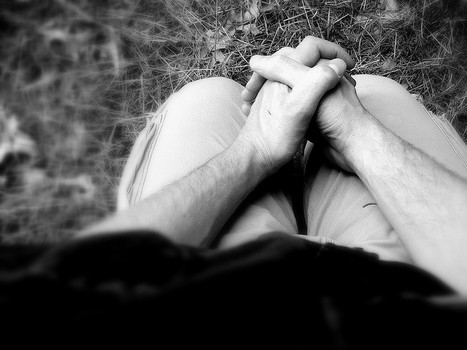Today’s sermon text was 1John 1.5-2.2. An hour long-tirade on confession and sin isn’t the most uplifting of Mother’s Day sermons but, alas, honoring Mom’s is biblical and mother’s day is not. What is  biblical and the purpose of gathering as a church is to worship Jesus by preaching the gospel. And if we don’t leave Sunday morning offended by God’s truth, the gospel probably wasn’t preached.
biblical and the purpose of gathering as a church is to worship Jesus by preaching the gospel. And if we don’t leave Sunday morning offended by God’s truth, the gospel probably wasn’t preached.
The more I study John, the more I am coming face to face with my sin. His words are simple to understand and difficult to misunderstand. As he writes to condemn false teachers and refute false doctrine, I can’t help but feel like he is challenging me. No matter how hard I try to distance myself from the text, to point the finger that “those other people”, I can feel the finger of the Holy Spirit making a dent on my chest.
In his defense of sound doctrine, John uses a series of contrast images to distinguish those who believe and those who do not. Some of those images include those with eternal life and those condemned to eternal death; those who love God and those who love the world; those who follow Christ and those who follow the anti-Christ; those who love their brothers and those who hate their brothers; those who have fellowship in God, those who just have fellowship with each other apart from God.
In 1John 1.5-2.2, John focuses on the contrast between light and darkness. His intention is to break down the s the false teacher’s doctrine concerning sin and the holiness of God. He begins by saying GOD IS LIGHT and proceeds to explain that those who walk with God walk with the light. His implication is that these false teachers are walking in darkness, finding creative ways to hide, deny, or redefine their sin. His letter echoes what he already wrote in his gospel years earlier, where avoiding the light is essential characteristic of non-believers: “18 Whoever believes in him is not condemned, but whoever does not believe is condemned already, because he has not believed in the name of the only Son of God. 19 And this is the judgment: the light has come into the world, and people loved the darkness rather than the light because their works were evil. 20 For everyone who does wicked things hates the light and does not come to the light, lest his works should be exposed. 21 But whoever does what is true comes to the light, so that it may be clearly seen that his works have been carried out in God.”
There are many ways to avoid the light and walk in the darkness, all of which amount to lying to others, lying to yourself, or worse, lying about God. Though unbelievers can’t do anything but exchange the truth for the lie, I am convinced that believers make the same choice. Here are the some of the lies we often tell in plain language:
“I do not walk in darkness.” This person pretends to walk with God though they enjoy pursuing their sin when no one else is looking. They live life with one foot in the light and one foot in the darkness. They are fake, able to manufacture personal piety (actions, language, etc.) when their around the “saints” and blending in with all compromise with the “sinners”. Most of these people hide their love of darkness well–they are disciplined about walking carefully in their sin so as not to be caught. Of course, there are the brash few who claim to be Christians but live unapologetically like pagans. In short, though their words may sound different, their lives don’t look any different than the world. They are liars, and bad ones at that.
“I never walk in darkness anymore.” This person wrongly assumes that they became fully sanctified when they accepted Jesus. They may very well be a believer, but they are not a very honest or open one. They walk in the light, but not too close to God so as to avoid having to deal with the depth of their sin. They work out their faith on the surface. Even if they live in community, no one knows anything about their struggles with purity—the things that call to them from the darkness. Even if they share their past dabblings with darkness, it is doubtful they will ever come to see themselves as Paul did, “the chief of all sinners” in the present.
“There is no darkness to walk in”. This person denies that God is the one who dictates what is right and wrong. They walk wherever they want because their paths are not lit by God. Though they in fact walk in darkness, they claim to have light. They lamp unto their feet and the light of their path is in fact their own desires and experiences. When the word of God confronts them in their sin, the problem is always with context, interpretation, or the preacher…never with their own heart.
The solution of all of these is to walk in the light, in gospel community, regularly confessing one’s sin. It is coming face to face with your sin daily, confessing it, and claiming forgiveness in Jesus. Silence is at the heart of darkness because it denies our sin, rebellion, and brokenness while rejecting our need for a savior. Confession is at the heart of light, the heart of God, because through it we admit our faithlessness, declare our need for a savior, and accept God’s faithfulness in Christ.
Next Blog: The Gift of Confession




